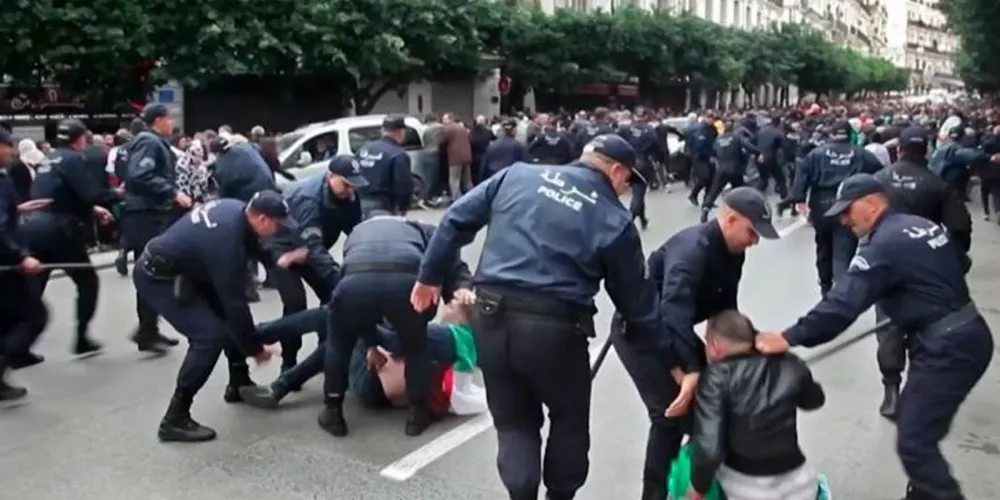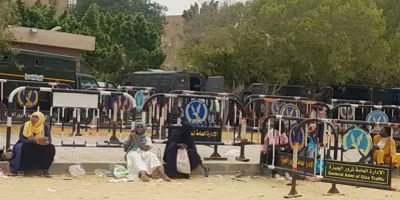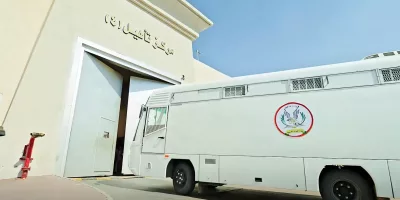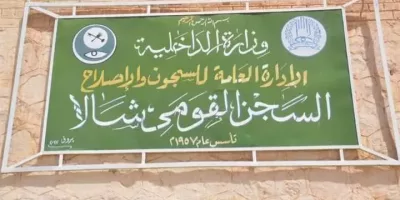The Committee for Justice (CFJ) stated that a series of serious violations currently taking place in Algeria, revealing a worrying pattern of judicial overreach, suppression of dissent, and the misuse of vague legal texts to silence human rights defenders, activists, and civil society members, have raised grave concerns regarding the ongoing deterioration of political and human rights conditions in the country.
On June 1, 2025, civil activist Fawzi Abdelkader Zakout attempted to set himself on fire in front of the Ministry of Justice in Algiers, live-streaming the incident on his Facebook page. Zakout described this act as a form of protest against what he described as “systematic judicial oppression” by a judge at the Frenda Court in Tiaret Province. Zakout had been imprisoned in 2020 based on a ruling issued by the same judge, whom he accused of fabricating charges and threatening him with ten years of arbitrary detention.
On June 26, 2025, the Criminal Court in Dar El-Beida, Algiers, issued prison sentences against 18 former officials from the banned “Islamic Salvation Front,” following 21 months of detention before the verdict. The charges included “undermining national unity” and “exploiting the wounds of the national tragedy through writings and statements that threaten state security.” Six individuals were sentenced to four years in prison, eleven others to three years, and one person to two years.
Despite the dropping of the felony charge under Article 87 bis related to establishing banned organizations, the remaining politically-motivated charges were retained. Most of the detainees had entered a hunger strike since November 2024, protesting the prolonged detention and deteriorating health conditions.
In another context, Algerian poet and activist Mohamed Tajdite appeared before the Criminal Court in Dar El-Beida, Algiers, on June 22, 2025, charged with “incitement to terrorism,” “supporting terrorist organizations,” and “publishing content harmful to national interests,” stemming from his peaceful activism, including his well-known 2024 online campaign under the hashtag #JeSuisPasSatisfait. The use of vague legal provisions such as Articles 87 bis, 96, and 146 of the Penal Code to charge him sparked widespread criticism. Despite receiving a presidential pardon in October 2024, he was rearrested in January 2025 in a new case, appearing to be a continuation of the pattern targeting activists through the judiciary.
The CFJ also closely follows the case of human rights and environmental activist Tahar El-Arabi, former president of the Algerian Human Rights League in the Aïn Beida Sidy Cheikh branch, who has been detained since September 18, 2024, at Abadla prison in Bchar Province. El-Arabi began a hunger strike on April 21, 2025, protesting the conditions of his detention amid a severe deterioration in his health, without receiving the necessary medical care so far.
These ongoing cases, among others, confirm the existence of a systematic pattern of exploiting vague and broad legal texts—particularly within the Penal Code—to suppress dissent and restrict civil society. The abusive application of anti-terrorism laws to suppress peaceful freedom of expression has led to repeated condemnations by international human rights bodies.
Therefore, The CFJ calls on the Algerian authorities to take immediate action to release all individuals detained for exercising their legitimate right to freedom of expression and peaceful assembly, stressing the need to ensure all detainees—including Tahar El-Arabi—receive appropriate medical care and a trial meeting internationally recognized standards of justice.
The CFJ also urges Algerian authorities to stop using anti-terrorism laws as a tool to pressure activists and human rights defenders, as such practice constitutes a violation of fundamental human rights and freedoms of opinion and peaceful political activity. The committee considers it essential to conduct a transparent and comprehensive review of judicial practices in the country to put an end to politically motivated prosecutions.
Furthermore, The CFJ urges the Algerian authorities to fully honor their international commitments regarding human rights and to strive to create a safe and supportive environment for the practice of human rights work and civil engagement, free from the risks of retaliation or security harassment.






